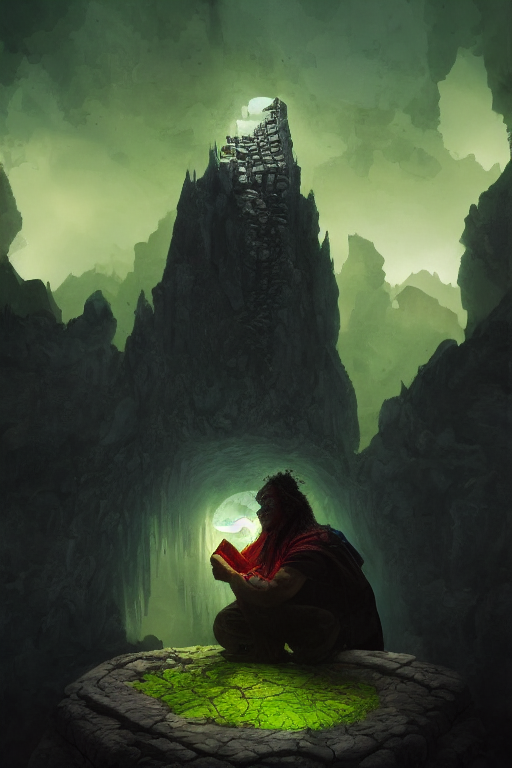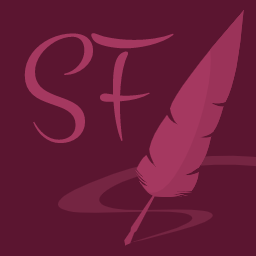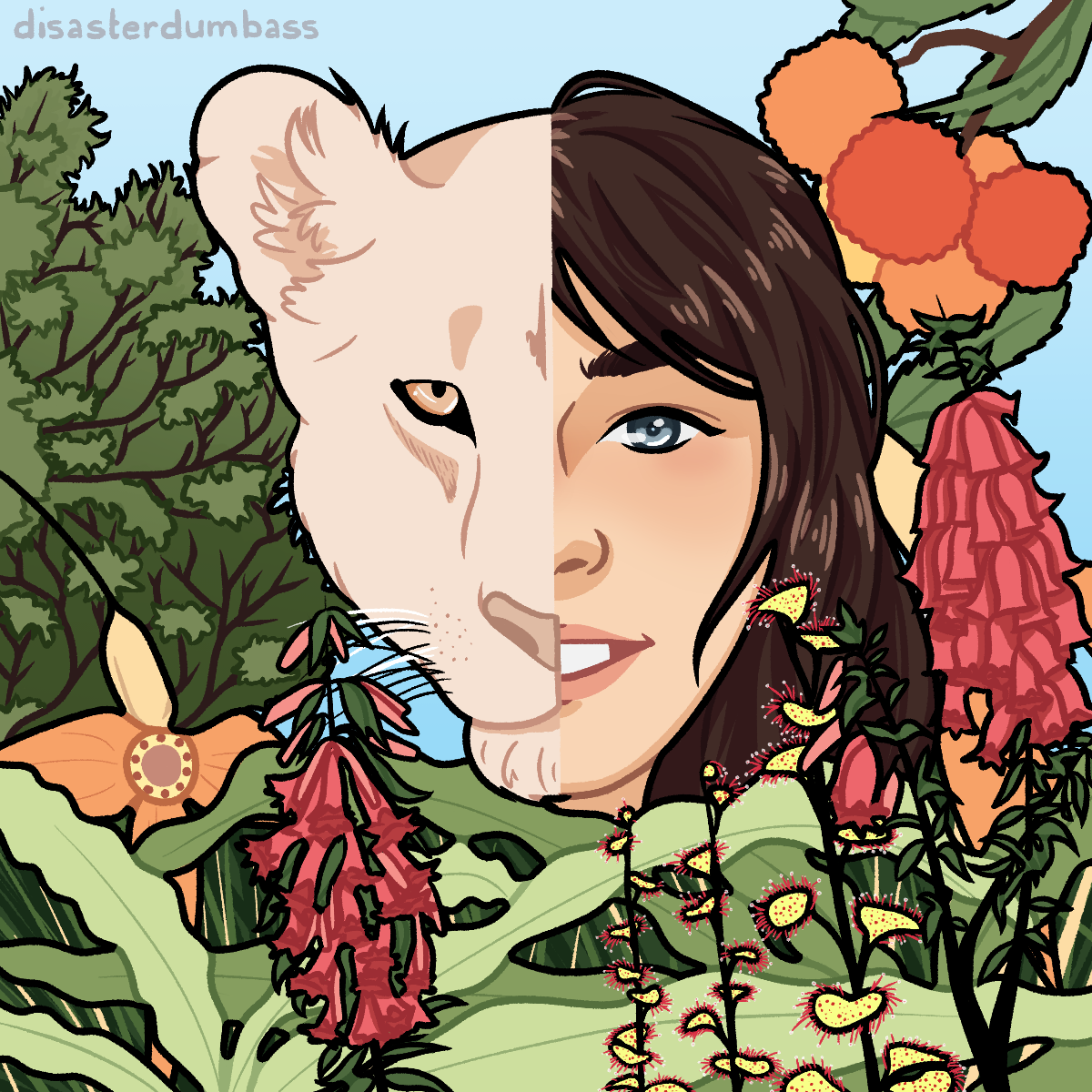Are you the Orc scholar finding cracks within the world?
Anatomy & Morphology
General description
Most Orcs stand taller than Humans and Elves, and are typically buklier in build than Humans. Most orcs have a similar skintone range of Humans, except with a shift to gray stone-like colorization. The average Orc could also be described as the Turvesdzint written character is literally translated - "Large Stone Human Person." While the myths and stories of Orc and Human origin conflict, there are some Turves who believe Orcs were Humans carved from stone.Facial Characteristics & Features
The most common defining feature of an Orc, or someone with Orc blood, are tusks. Some Orcs have their tusks growing from their lower jaw, and others have tusks from the upper jaw, though very few have a "mis-matched" pair of tusks or have outward-facing tusks. Most languages have an "Orcish" dialect to replace sounds requiring a sealed-lips formation or other mouth-made-shapes hindered by the presence of the tusks. While the general skintone range of Orcs is a stone-like parallel to Humans', Orcs eye coloration tends to be "more" of the color than most Human eyecolors. Very few Orcs could be described as having "faded" or eyes of an "indescernable" color.
"He's a half-orc. It's one thing for the Great-Cooks to adopt a Catfolk girl, but what's so endearing to anyone about a half-orc?" "I'm told it was my eyes. My first parents died in a storm rescuing a whaling crew, what did your parents do for the arling?"
Biology
Society
Orcs have to combat old stereotypes of being described as "dirty" for their travels or "too lazy" to setting and build a society - stereotypes dating back to the Adrakian Empire. Despite the stereotypes, Orcs as a species are disgusted by a lack of cleanliness and identify cleanliness with good health and wealth. Curiously, Orcs have metal crafting skills to rival the Dwarves. In the mountain Arlings of Theydim, and the regions of Tormyra where most Orc wanderers are found, there are medical schools and often those settlements with the schools are retreats for those who can afford the journey in order to receive treatment at the hands of skill Orc healers (or their students). It is believed Orcs and Nomadic Elves both wander for some deity-given reason, and while the Nomadic elves can settle without the drive to travel, Orcs cannot. Some scholars - Orc and non-Orc - believe a deity had cursed the Orcs, though why is subject to heavy debate.History of the Species
As a species, the Orcs have been wanderers since the earliest Adrakian records. Among the the Turves, there are records of the explorers asking if Orcs had been carved from stone, and Humans molded from clay. The same records state the questions were met with confusion. Most of the stereotypes date back to the Adrakian Era, where the "Orc bands" were never fully incorporated into the Empire due to a lack of their own settlements - they were never "conquered" like "civilized" people could be. Since the fall of the Empire, the Orcs have been fighting the discrimination while several Orc scholars have been researching ancient ruins to try and uncover the history of their species.Beauty Ideals
Clear eyes of a strong coloring, often decorated by makeup, tattoos, or other forms of ornamentation. Clean and well aligned teeth and ideally with a lack of cavities. Braces for straightening teeth are acceptable. While wear and damage can detract from beauty, cultural allowances are made as long as the tusks are cared for and show signs the Orc in particular did not acquire the wear and damage through neglect. Muscular builds, calluses relating to occupation, and a lack of scars or signs of well treated scars. In general, non-Orcs can describe Orcish beauty as generally being "Strong enough to work, patient enough to work hard, skilled enough to stay healthy or be healed well." The more specific forms of beauty are typically defined further by the individual's tastes and ethnicity.Taboos
To break off another Orc's tusk is to declare a life feud which will not end until one or the other is dead. To describe an individual as "dirty" is one of the strongest insults, second only to "lazy," and stems from a long history where academics would describe the wandering Orcs as dirty for their constant wandering (despite Nomadic Elves also wandering at a near constant pacing) or too lazy to build a culture or society. While not a taboo, Orcs and Orc-bloods, tend to struggle with staying in any one place for longer than a handful of years. Those with orcish heritage who have professions or responsibilities allowing for, or requiring, travel do not have the struggle as much as their non-hybrid Orc relatives. The closest to a permanent settlement would be migratory routes intersecting where other peoples have already live.Female - 6'-6.5'








Good job overall, near the end in the beauty ideals section "patient enough to work hard" seems to be an odd phrase to me. Perhaps "motivated enough to work hard" or "patient enough to master their craft" would work better? I like they have acquired different skills, like metal crafting and healing, that would be beneficial to a nomadic people. Possibly another thing to consider for either the orcs or the Nomadic Elves, could one or both of them have a permanent "settlement" (or have had one in the past) that they meet at every "x" years if they are able, for a large celebratory gathering before dispersing back to the corners of the world? I'm thinking something like the hardly ever mentioned Dothraki city in the first book of Game of Thrones. Just an thought
I'm glad the article was enjoyable - I was surprised when I only wrote in three sections and hit my non-BBCode word minimum and still had more stuff to write. xD The Nomadic Elves have settlements they move to and from, but because of unrecorded world history, the Orcs do not have a settlement of their own (culturally), but meetings would likely be a huge deal when they occur with or without a settlement. I have some inspiration from Elder Scrolls Orcs where Orsinium never seems to quite stick, but I also took, in my mind, the Strongholds and made them more mobile. How does a forge move? Very slowly. xD The medical and metalworking skills came out of a fragment from a campaign session, and me sitting and trying to decide if Tusk Carving would be a thing. (Decided not to, because of cavities, soo the Orcs get dentistry and medicine) I found the phrasing in Ideals awkward too, and the ideals section is in that hybrid of a list and description while I try and mentally mull things over. Might be a thing for after WorldEmber if it takes a while. xD